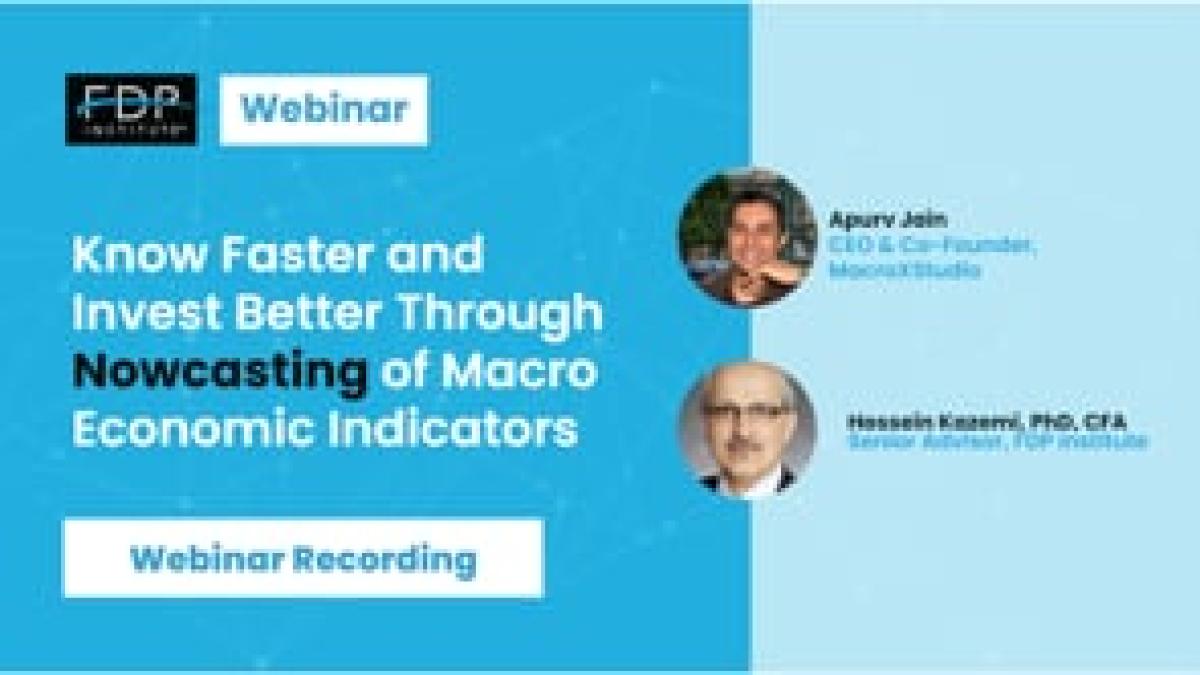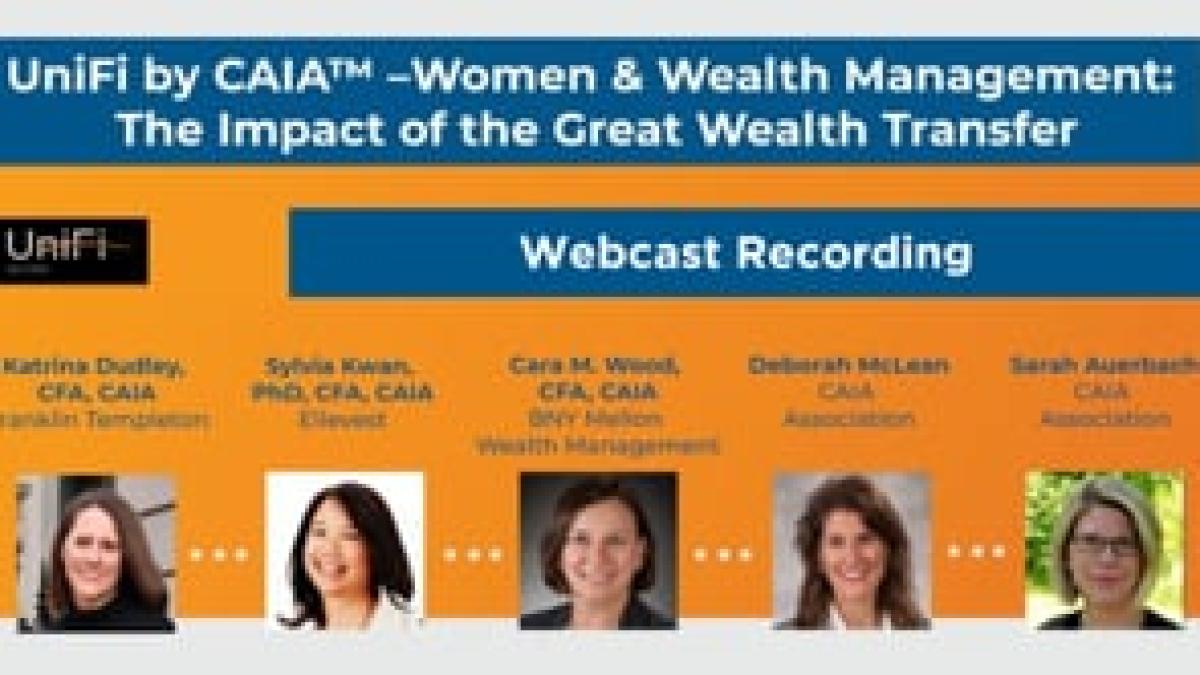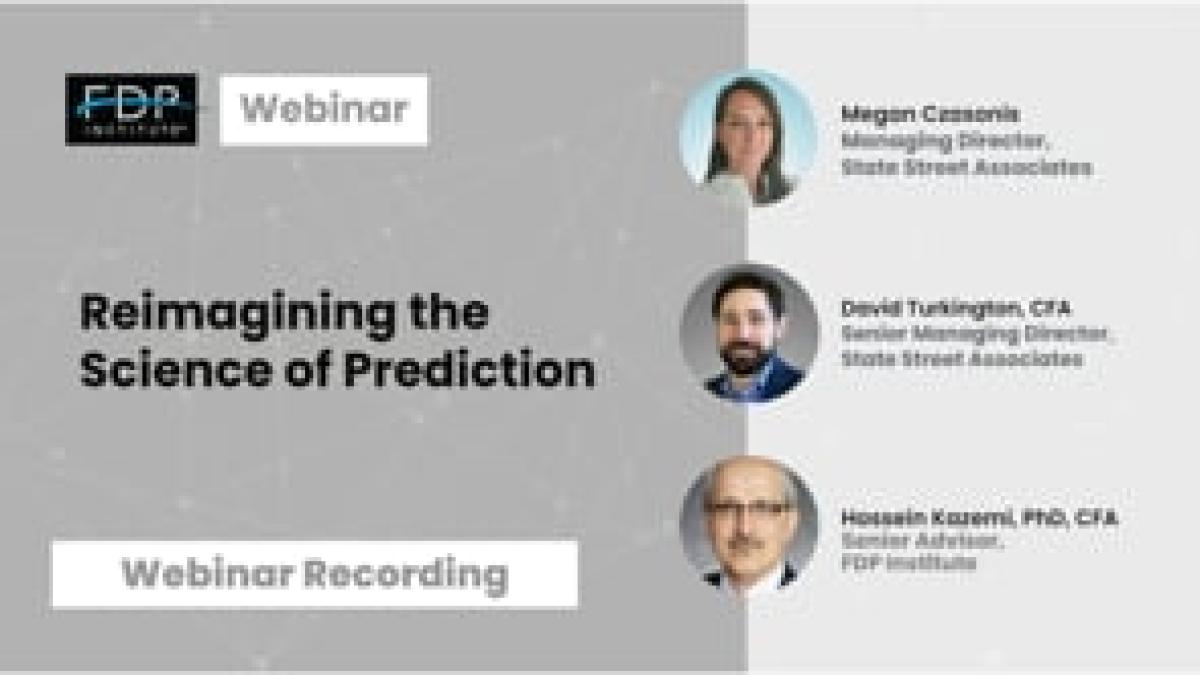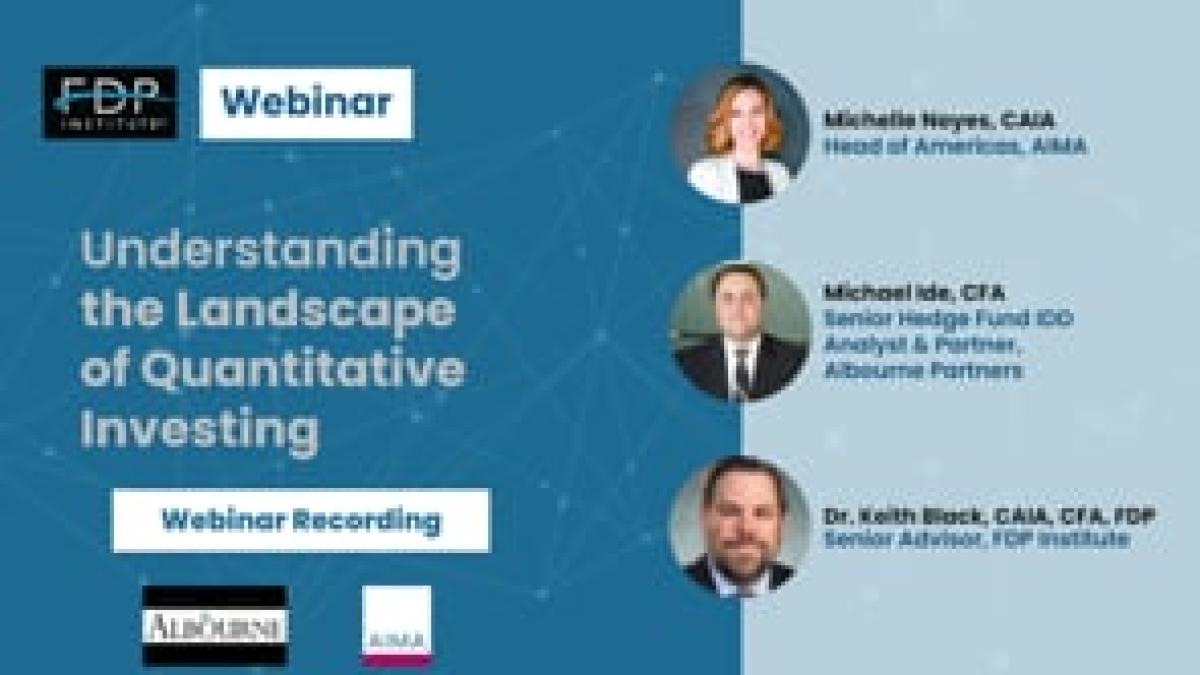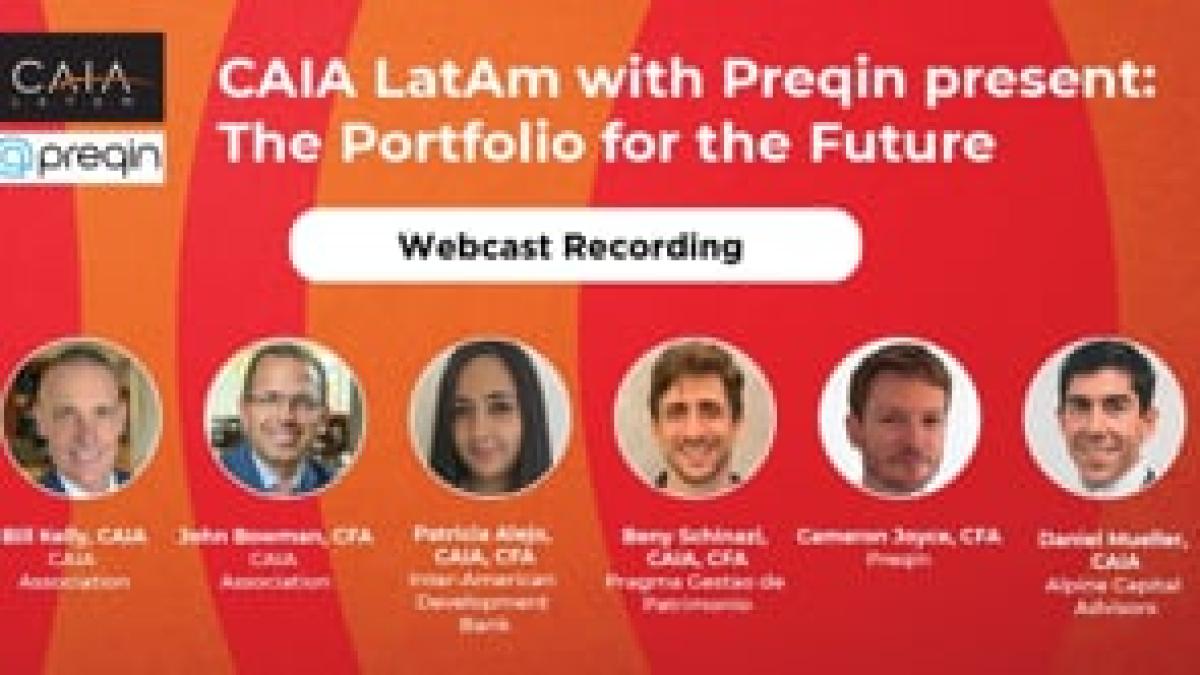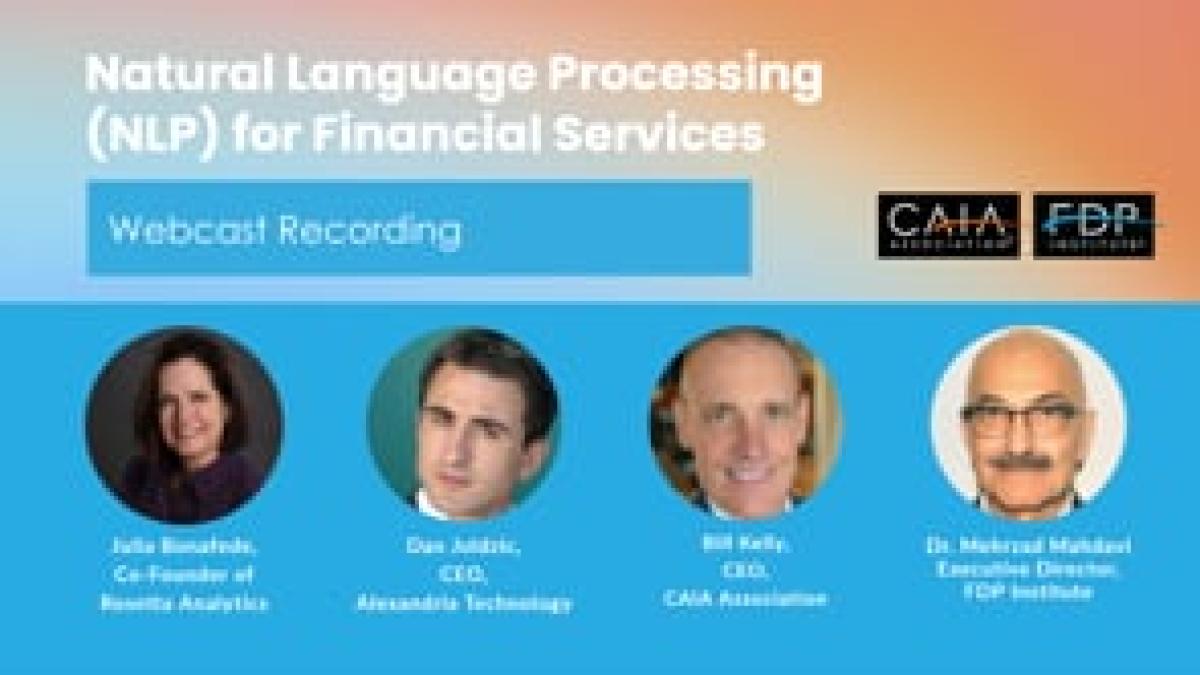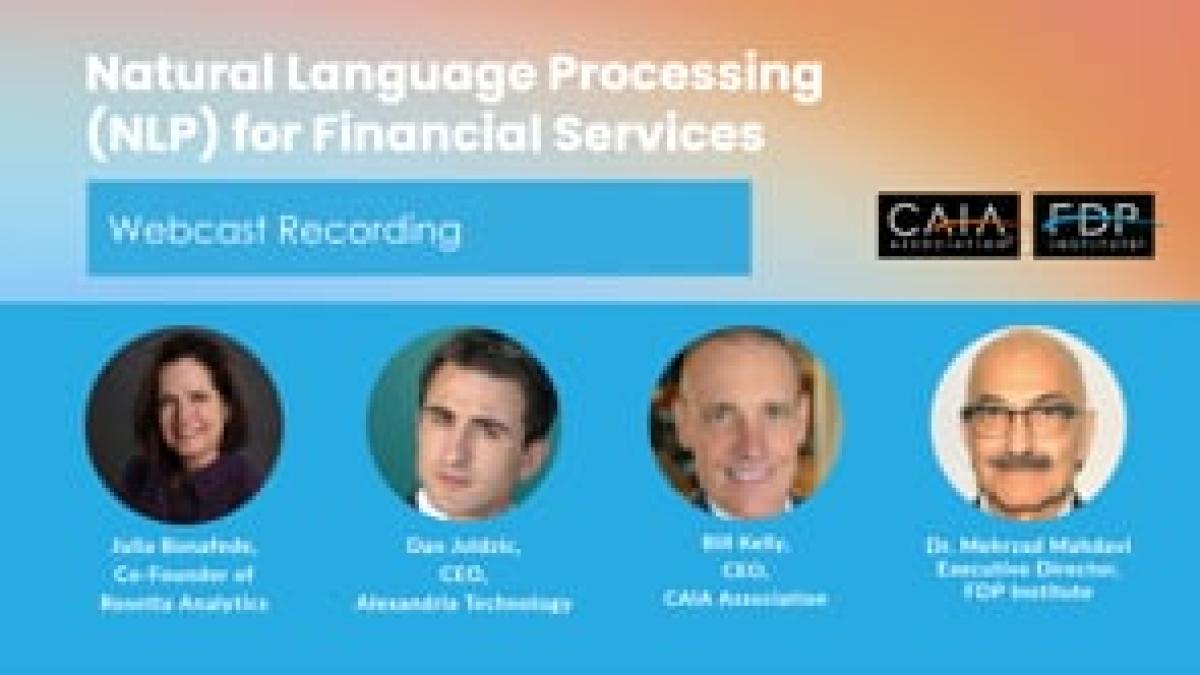Recorded Webcasts
This web seminar featured members of the CAIA Curriculum Team as well as Candidate Relations. The following topics were discussed:
- Curriculum Materials
- Exam Format
- Review of Exam Topics
- Available Resources
First Friday of each month, at 8:30 am ET, the US Bureau of Labor Statistics (BLS) releases one of the most important macroeconomic indicators - the jobs report or non-farm payrolls (NFP) that makes headlines and moves financial markets worldwide. What is the value of knowing NFP 2 to 3 weeks in advance and 10% more accurately than the Bureau of Labor Statistics (BLS) and Wall Street analysts? Instead of waiting months to know key economic concepts like the GDP, sophisticated investors are leveraging the science of nowcasting to open a clearer window into the future. Nowcasting or real-time measurement using alternative ("Big") data and machine learning is particularly impactful in emerging economies and also has the potential for driving positive social impact. Dr. Hossein Kazemi of the FDP Institute shared details from Apurv Jain, CEO, and Founder at MacroXStudio, about this exciting new area of data analytics. Webinar attendees were also able to download a preprint copy of Apurv’s book chapter on “Alternative Data and Machine Learning for Macro Nowcasting” appearing in Machine Learning And Data Sciences For Financial Markets - published by Cambridge University Press in 2023.
Much has been written about the great wealth transfer expected this decade. It is estimated that women will assume control of nearly thirty trillion dollars within the next ten years. Additionally, they will continue to earn more, as business founders with women-owned companies reaching “unicorn status” grew from 18 to 83 between 2020 to 2021 alone! How does this wealth transfer and growth for women impact the private wealth management industry, and, more broadly, the asset management industry? How must the industry change to meet the needs of this growing body of wealthy women? This session offered a discussion around examining the unique challenges posed to the industry associated with women as clients and investors. Both advisors and the industry will need to evolve to meet the distinctive needs of women – their perspectives, attitudes, and strategies.
The Rocky Mountain Chapter seeks to build a diverse and inclusive community of CAIA Members, Candidates, and industry professionals across seven western US states including Colorado, Utah, Nevada, New Mexico, Wyoming, Idaho, and Montana. The Chapter will provide opportunities to network, share ideas, educate and promote the use of alternative investments to improve long-term outcomes for investors and society.
CAIA's CEO Bill Kelly, EVP John Bowman, and CAIA Foundation President, Debbie McLean, were in attendance in Denver as we officially launched the Rocky Mountain CAIA Chapter. The launch event featured two panel discussions from industry thought-leaders.
To support FDP Candidates and those considering the pursuit of the FDP Charter, we offered a brief, live webinar with our Curriculum team. A typical Orientation Session includes the following:
• Review sample exam questions.
• Learn exam-taking tips.
• Have your questions answered by our exam experts.
Formal remarks of the presentation lasted approximately 45 minutes, with 15 minutes for Q&A.
Today's investors face daunting prediction challenges, and it is more critical than ever to blend intuition with data-driven rigor. Dr. Hossein Kazemi of the FDP Institute hosted a discussion with co-authors of the new book “Prediction Revisited”, David Turkington and Megan Czasonis. The focus of the discussion was on the building blocks of data-driven prediction from a fresh perspective whereby data represents “experiences” rather than variables, revealing the link between linear regression and information theory and how the concept of relevance leads to more intuitive and effective predictions.
What types of managers and strategies use quantitative techniques such as artificial intelligence, machine learning, regression, and backtesting? What do investors need to understand before making allocations to these strategies? What due diligence considerations are specifically helpful when evaluating quantitative managers? Albourne Partners, AIMA, and FDP Institute hosted a discussion on quantitative investing. Dr. Keith Black, FDP Institute discussed the landscape of quantitative investing with Michelle Noyes, AIMA and Michael Ide, Albourne Partners.
The Financial Data Professional Institute (FDPI), established by CAIA Association, has designed a self-study program to provide financial professionals with an efficient path to learn the essential aspects of financial data science.
The Portfolio for the Future simultaneously represents a “back to basics” mantra and a forward-looking view of where our industry and capital markets are headed. What defined success over the past decades may very well be at a tipping point at a time where many of these secular trends may be challenged moving forward. Rising inflation, tightening monetary policy, low and volatile interest rates, and high valuations mean that the Portfolio for the Future will be defined by five distinct “marks”: Broadly Diversified, Less Liquid, Rooted in a Fiduciary Mindset, Actively Engaged, and Dependent on Operational Alpha.
Listen in as CAIA's CEO Bill Kelly, CAIA, EVP John Bowman, CFA, and a world class panel of senior investment professionals explore this new initiative.
Language is one of the great untapped resources of information. Today’s NLP field covers the full cycle of recognizing and understanding speech, processing natural language and generating text including automatic coding. NLP is everywhere – when you dictate a text message to Siri, ask Alexa for the weather, search on Google, use email services that filter out spam, check out spelling and grammar, and even autocomplete an entire message.
Adoption in financial services is wide and high impact with applications such as – sentiment analysis, tracking relationships, legal and compliance, speech recognition and advanced chatbots, information retrieval, and ESG.
Language is one of the great untapped resources of information. Today’s NLP field covers the full cycle of recognizing and understanding speech, processing natural language and generating text including automatic coding. NLP is everywhere – when you dictate a text message to Siri, ask Alexa for the weather, search on Google, use email services that filter out spam, check out spelling and grammar, and even autocomplete an entire message.
Adoption in financial services is wide and high impact with applications such as – sentiment analysis, tracking relationships, legal and compliance, speech recognition and advanced chatbots, information retrieval, and ESG. We discussed the current state of NLP and implications for financial services.




